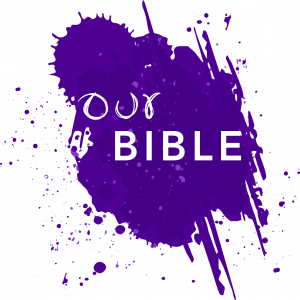
Crystal Cheatham was 23 years old when she was told she couldn’t be gay and Christian. Cheatham, a practicing lesbian, who had grown up attending and singing at a Seventh-day Adventist church, was about to graduate from Andrews University in Berrien Springs, Michigan when she was told that she could not be a church leader and “an out lesbian.”
Cheatham, now an activist, has set out to create a digital space for LGBTQ people to explore their own spiritual practice without having to surrender any part of their identity. She is leading the effort to create Our Bible, an app set to release this fall that plans to offer at least 20 Bibles and more than 300 devotional readings, meditation exercises, articles and podcasts for LGBTQ Christians and others who feel marginalized by mainstream Christianity.
While 48 percent of lesbian, gay and bisexual people self-identify as Christian (according to a Pew Research poll), their identities are often controversial among Christian faith leaders who point to Biblical passages that condemn homosexuality. Different denominations of Christianity have varying stances, major denominations, including the Roman Catholic Church and the Church of Jesus Christ of Latter-day Saints, along with numerous evangelical churches, continue to condemn same-sex marriage and LGBTQ rights. Consequently, in this age of politically correct hypersensitivity to the need to make everyone feel included along with their sins, many LGBTQ+ people feel marginalized by these denominations. Cheatham became an activist joining a group traveling to religious universities to promote acceptance of LGBTQ identity. “When Christian schools and other institutions exclude LGBTQ people,” said Cheatham, “it leaves LGBTQ Christians with a difficult choice between hiding their identity in religious spaces or giving up the social support of those groups.”
“A lot of times religious spaces and spiritual resources exclude us from the narrative and exclude us in their content, or their content is actively hostile,” said Eliel Cruz, a bisexual, and the director of communications for Our Bible.
But research shows that more and more Christians have grown to embrace LGBTQ people. Between 2014 and 2016, the Religious Landscape Study found an increase of 10 percentage points among Christians who believe that LGBTQ people should be accepted. This shift is largely attributable to younger people who came of age during an era of political movements promoting LGBTQ rights.
Rodney McKenzie, a minister who is curating the app readings, said he wants the readings to connect people “to the love and the truth that is ever-present wherever they are.” Cheatham said she had received a “very small” amount of negative messages about the app. But mostly, “what I’m feeling right now is a pregnant silence, and I’m waiting to figure out the truth of how people are reacting to this,” she said.
Apparently, Ms. Cheatham and her colleagues believe that if the Bible doesn’t support their lifestyle, they should just change the meaning and understanding of the Bible by aligning the Bible with their cultural identity.
“But evil men and seducers shall wax worse and worse, deceiving, and being deceived. God is purifying a people to have clean hands and pure hearts to stand before Him in the judgment. The standard must be elevated, the imagination purified; the infatuation clustering around debasing practices must be given up, and the soul uplifted to pure thoughts, holy practices.” 2 Timothy 3:13, &Testimonies on Sexual Behavior 88
